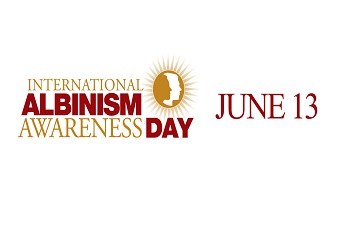13th June is observed as International Albinism Awareness Day every year. It was adopted by the UN General Assembly in 2014. The date of June 13 was chosen because on that day in 2013 the United Nations adopted its first resolution on albinism.
Albinism is a rare and non-contagious genetic disorder inherited by birth.
It is characterized by the partial or complete absence of the pigment melanin in the skin, hair, and eyes.
Lack or absence of melanin in the skin makes the sufferer more prone to sunburn and skin cancers. There is no cure for the absence of melanin.
Albinism is also associated with visual problems, namely photophobia, amblyopia (lazy eye), nystagmus and others.
People with albinism frequently face social challenges like discrimination, ridicule, and sometimes fear and related violence.
Persons with albinism face more severe forms of discrimination and violence in those regions where the majority of the general population are relatively dark-skinned like African countries.
International Albinism Awareness Day is observed to raise public awareness of albinism and prevent attacks and discrimination against persons with albinism. All UN member states and organizations, as well as international and local organizations and civil society are encouraged to hold and participate in appropriate events and activities.





